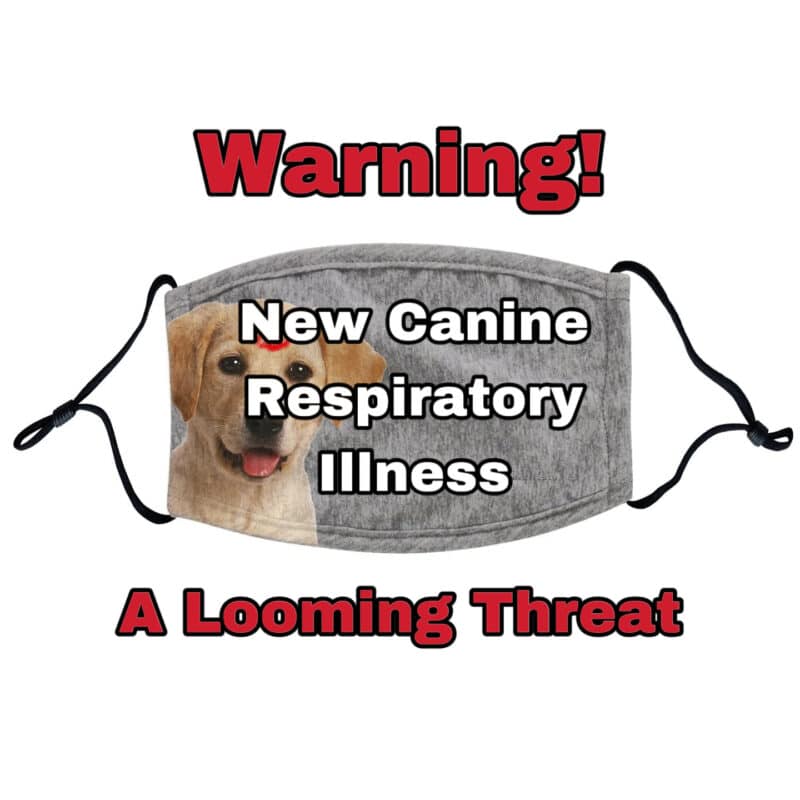Dog Care, Pet Health and Wellness, Veterinary Medicine
Canine Respiratory Illness: Facing a Looming Threat to Our Furry Companions
Canine Respiratory Illness: A Looming Threat
By Will Bangura, Online Editor, Certified Canine Behavior Consultant November 30, 2023Introduction
In recent months, an alarming surge in canine respiratory illness has swept across the United States, leaving veterinarians baffled and dog owners concerned. The illness, characterized by a constellation of respiratory symptoms, has been particularly severe in certain regions, leading to a surge in hospitalizations and even fatalities. While the exact cause of the outbreak remains elusive, ongoing investigations point to a potential link with an emerging bacterial or viral strain.
Clinical Presentation
The respiratory illness affecting dogs manifests itself through a range of symptoms, primarily affecting the respiratory tract. Affected dogs often exhibit persistent coughing, sneezing, and labored breathing. In severe cases, dogs may experience fever, lethargy, and loss of appetite, leading to a rapid decline in their overall health.
Geographic Distribution
The outbreak has been reported in at least 14 states across the United States, with a particularly high concentration of cases in the Midwest and Northeast regions. The widespread nature of the outbreak suggests a highly contagious pathogen, prompting enhanced vigilance among dog owners and veterinarians nationwide.
Etiological Investigation
Veterinarians and researchers are actively engaged in identifying the exact cause of the respiratory illness. While initial investigations have ruled out known canine respiratory viruses, the possibility of a novel strain or an emerging bacterial pathogen remains under consideration.
Treatment and Prevention
In the absence of a definitive diagnosis, treatment for affected dogs primarily focuses on supportive measures, such as oxygen therapy, hydration, and symptomatic relief. Early diagnosis and intervention are crucial for improving the chances of a successful recovery.
To minimize the risk of infection, dog owners are advised to practice preventive measures, including:
-
Vaccination: Ensuring that dogs are up-to-date on their vaccinations can help protect them against common respiratory pathogens.
-
Contact Avoidance: Limiting contact with sick dogs can reduce the risk of exposure to the illness.
-
Hygiene Practices: Maintaining good hygiene, including regular hand washing after handling dogs, can further minimize the spread of pathogens.
Conclusion
The ongoing canine respiratory illness outbreak poses a significant threat to the health and well-being of dogs across the United States. Continued research and surveillance efforts are essential to identify the causative agent and develop effective preventive and treatment strategies. Dog owners are urged to remain vigilant, practice preventive measures, and seek veterinary attention promptly if their dogs exhibit any signs of respiratory illness.
References
-
American Veterinary Medical Association. (2023, October 4). Canine respiratory illness investigation. Retrieved from https://tw.news.yahoo.com/video/canine-respiratory-illness-reported-according-232607650.html
-
Centers for Disease Control and Prevention. (2023, October 4). Canine respiratory illness. Retrieved from https://www.avma.org/resources-tools/pet-owners/petcare/canine-infectious-respiratory-disease-complex-kennel-cough
-
The New York Times. (2023, September 27). A mysterious respiratory illness is killing dogs across the United States. Retrieved from https://www.nytimes.com/2023/11/20/science/dog-respiratory-illness-us.html
Will Bangura
Will Bangura is a world-renowned canine behaviorist with over 35 years of experience. He specializes in helping dogs and their owners overcome some of the most difficult behavior problems, such as extreme aggression, severe anxiety, and fear. Mr. Bangura is also a certified professional dog trainer and behavior consultant. He is the host of the weekly Podcast Dog Training Today, heard in over 100 countries.


